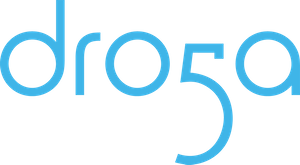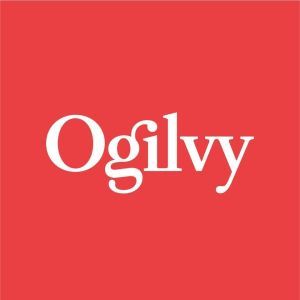
Brand’s Approach to Trust and Truth Nearing the Festival of Deceit

Photo by Marloes Hilckmann on Unsplash - 'Streetart artist work of a clown in Roma' - Streetartist MIMI the Clown
It’s 2024. The world is hurtling through obstacles never faced before. AI is creating a labyrinth of linguistic and visual tunnels that we’re struggling to navigate. And 86% of consumers cite authenticity as a deciding factor for brands they support.
With April Fool’s Day around the corner, the holiday known for whoopie cushions and big belly laughs is taking on an eerie tone. At a time where opinions and perspectives on ‘truth’ are dramatically polarised, this festival of deceit has people wondering about the state of trust. As authenticity fragments, we only have to reflect upon the past few weeks to see a cup overflowing with examples. The conspiracy theories around Princess Catherine had otherwise sensical individuals spinning into delirium. Only yesterday we looked on – many of us in horror – as Donald Trump’s ability to harness support resulted in a soaring market debut for his Truth Social network.
We wanted to hear from experts to find out whether or not they think truth and trust are facing unique or new threats. Is this really the case, or is social media chatter just imbuing us with that impression? We asked our contributors how brands should navigate this landscape. Here’s what they had to say.
Eloise Sykes, senior strategist, Droga5 London
We live in an age where ‘truth’ feels a lot less interesting than the prospect of a hoax. Maybe it’s post-covid nihilism, a combination of boredom and overwhelm, a ‘says who?’ approach to authority, but nothing (not even a Royal…) is sacred.
At the same time, trust in brands remains higher than in elected officials. Does this give us any kind of responsibility to guard – or indeed shine light on – truths? I think so.
However, I don’t mean any kind of universal ‘truth’. The most valuable truths espoused by brands are ones that few on the outside might already know. Think Volvo and the relative unsafety of driving as a woman.
This year, we’re marking April Fool’s with a campaign for the charity, Sister Circle, highlighting uncomfortable truths around the shocking health inequality that exists for women in the UK. Did you know that Black women in the UK are 4 times more likely to die in childbirth than white women? Or that the UK’s maternal mortality rate is the highest it’s been in 20 years?
There’s no trickery in these numbers, although, for a country that prides itself on gender inclusivity and healthcare access, they can seem unbelievable. At a time when ‘the truth’ has come to feel overrated, underrepresented truths have never been more important. Rather than reassuring viewers that this isn’t the reality, we hope this campaign does the opposite: rally for volunteers and donations when UK mothers need it most.
George White, co-founder, 10 Days London
April Fools Day. Anything goes, right?
It’s like the purge for truth. Awesome trickery wins the day.
The best fools, jokes, are the ones that just might be true.
Thanks to the internet, we all have a more sensitive truth-o-metre.
We are less shocked. We are desensitised. We are constantly being triggered.
Truth is, we only want truth when it suits us.
When we can complain (Partygate).
When it satisfies drama (Princess Catherine).
Or when it challenges our world view (Trump).
There are more I’m sure.
But they are all a concoction of needs we look for stories to entertain us.
So how do brands navigate this?
Well, they have been exaggerating claims for decades.
You will run faster. Look younger. Feel amazing.
Stretching the limits of truth.
So now they should care about trust and truth?
Let’s face it. No one really cares about your brand.
They don’t take it as seriously as you do.
But you just can’t deceive.
On things that you promise.
And on things you stand for.
It’s that simple. Credibility is everything.
But if you are gonna make a song and dance.
Follow the standard practice in good comedy.
Respect your audience.
If there’s an ounce of truth or possibility of truth,
you are halfway there to keeping them entertained.
Des Creedon, ECD, TBWA\Dublin
As April Fool's Day draws near, the world finds itself at a crossroads where truth seems as elusive as a mirage in the desert of digital discourse. In this era of polarised perspectives, the very fabric of reality appears to fray at the seams, leaving us questioning whether we are spectators in a cosmic comedy or unwitting actors in a tragic farce.
Yet, amidst the cacophony of conflicting narratives, brands stand as beacons of possibility in the tumultuous sea of uncertainty. To navigate this treacherous terrain, they must embrace a new paradigm of authenticity and transparency.
Gone are the days of smoke and mirrors, where marketing sleight of hand could hoodwink consumers into submission. Today's discerning audience demands more than flashy slogans and empty promises — they crave authenticity, sincerity, and genuine connection.
In this landscape where truth is a rare and precious commodity, brands must become custodians of honesty, wielding it as a shield against the arrows of scepticism and doubt. By fostering trust through genuine communication and unwavering integrity, they can transcend the noise of deception and emerge as beacons of light and shape a future founded on trust, transparency, and unwavering authenticity.
Speaking of authenticity, the above was written by ChatGPT.
Is it any less truthful because of that? Nowadays, we all meet fake and truth in the same space. But truth is insensitive to our preferences, while fakes are doctored to fit them. So, determining what is fact or just opinion is the watch out. And that’s a fact. Well, at the very least, it’s my opinion…
Adrian Ash, client services director, Recipe
In 2023, we saw faux out of home [marketing] (OOH) spread into the mainstream and this year there seems to be a CGI video, mixing surreal happenings in everyday settings, put out daily. Creativity has been unleashed through AI, artificial reality and CGI as new worlds are created without the associated IRL production costs or the OOH media buys.
This is an exciting time for brands that want to leverage twisting reality to create new and disruptive ways to bring consumers closer and engage them in new, playful, and dare I say it, more affordable ways. The fact that these executions aren’t real is part of their appeal. Traditionalists and cynics might call this gimmicky, but it's driving tangible results for the likes of Maybelline and Netflix. Breaking the conventions of this medium is driving its effectiveness, as reach and impact are amplified online where there are more eyes and greater interaction.
But brands need to be mindful that developing fake creative for entertainment is one thing, but this shouldn’t creep into brand beliefs. Brand integrity, while not at risk through obvious playfulness in certain channels, shouldn’t be leveraged to enhance a brand’s purpose. That’s when trust can be compromised and consumers are no longer passive in calling this out. Bending the truth should be done in an obvious, not misleading way. Hyper-reality is acceptable when you are wrapping Big Ben in a North Face jacket. But there is a line. Let's encourage the use of new creative tools to create new playgrounds for brands, not alternative truths.
Emelina Nyqvist, strategy director, Ogilvy UK
A tech overload in recent years has already left so many feeling like they can’t keep up, and now they’re navigating AI.
AI is a powerful lever for our industry, but it’s still an unfamiliar territory for many consumers. And its potential to blur the lines of truth – leaving us unsure of what to believe – makes it feel like a possible threat.
When scepticism increases, building trust becomes tougher for brands. Audiences are more conscious of technology’s ability to manipulate the truth, and with that are more likely to question what they see and hear in the media. It’s harder for brands to earn their trust.
So how can brands best adapt in this fast-changing landscape? Focus on solving real human problems first. This is where we, as strategists, come in. We help brands navigate and truly understand consumers on a personal level. This goes way beyond just numbers and demographics. We grasp what really matters to people. What keeps them up at night? What’s the mood of the country? By doing this, brands can show up in relevant and helpful ways to build trust and drive impact at scale.
For brands committed to driving this genuine impact in the coming years, trust-building through problem-solving is going to be the key. It’s a big challenge, but essential for any relationship worth fighting for.


















